The 2025-2026 PHPC Leadership Institute application period is now open!


Year: 2025 | Competency/Strategic Skill: Communication; Leadership and Systems Thinking | Priority Topic: N/A | Setting: Online | Format: Live | Sponsor: Emory University/Central Office
Overview:
This is a live webinar on June 11, 2025, from 12:00 pm-1:30 pm ET. Participants will use Zoom to join.
An insightful webinar designed to explore generational differences within the public health workforce. This session aims to foster understanding and acceptance, encouraging leaders to champion unique differences and collaboration among all generations represented in their workplace. The content is tailored to spark reflection and conversation, ultimately enhancing leadership development and promoting a cohesive and effective public health environment.
Nina M. Johnson, EdS, LMSW, APTD has 15 consecutive years of professional experience in learning and talent development for communities, not-for-profit organizations, and government municipalities. As a skilled communicator, Nina has a history of implementing innovative programs focused on learner needs and performance enhancement. Utilizing her experience as a social worker, Nina employs exceptional relationship-building skills to connect with communities and clients with honor and respect to design and implement learning and leadership initiatives that are reflective of the needs and capacity of the community. Much of Nina’s work encourages and empowers leaders and potential leaders to access vulnerability, hope, and authenticity as leadership tools.
As a learning and leadership consultant, Nina develops, delivers, and evaluates leadership development programming and trainings for communities, organizations, and individuals. In addition to establishing transformative learning programs, Nina contributes to organizational cultures by championing initiatives to boost belonging and diversity. In addition to establishing transformative learning programs, Nina contributes to organizational cultures by championing initiatives to boost belonging and diversity.
Learning Objectives: By the end of this webinar, participants will be able to:
CERTIFICATE: The course contains two modules: a module to access the webinar and an evaluation module. After accessing the two modules, learners will earn a certificate of completion. When the certificate is available, learners will see a Certificate button on their dashboard.
This project is supported by the Health Resources and Services Administration (HRSA) of the U.S. Department of Health and Human Services (HHS) under grant number UB6HP31680, Public Health Training Centers for $4,348,992. This information or content and conclusions are those of the author and should not be construed as the official position or policy of, nor should any endorsements be inferred by HRSA, HHS or the U.S. Government.


Year: 2025 | Competency/Strategic Skill: Communication Skills; Leadership and Systems Thinking Skills | Priority Topic: N/A | Setting: Online | Format: On-Demand | Sponsor: Emory University/Central Office
Overview:
Each webinar recording is 90 minutes in length.
Empowered Leadership is a 4-part webinar series that is designed to empower leaders in creating thriving workplaces. From prioritizing mental health and fostering trust to supporting employee growth and strengthening team dynamics, each session offers actionable strategies to enhance your effectiveness as a supervisor.
Webinar 1: Cultivating Wellbeing – Mental Health Strategies for Supervisors — Discover the critical role supervisors play in fostering a workplace that prioritizes mental health. This webinar explores the impact of stress and burnout on staff and supervisors alike, offering practical strategies to promote well-being, normalize conversations about mental health, and create a supportive environment. Learn how modeling self-care and healthy boundaries can positively influence your team while enhancing retention and morale.
Webinar 2: Growth in Action – Empowering Employee Potential — This webinar focuses on recognizing individual strengths and aspirations, offering tools for career mapping, skill-building, and meaningful stretch assignments. Learn creative ways to invest in your team’s development—even with limited resources—while aligning growth opportunities with organizational goals. Help your employees thrive and contribute to your team’s overall success.
Webinar 3: Trust at the Core – Bulding Strong Supervisor-Staff Relationships — Trust is the foundation of any successful supervisory relationship. In this session, we’ll dive into how to establish, maintain, and repair trust to foster open communication and psychological safety. Gain actionable tools for transparent conversations, strategies for addressing mistakes constructively, and tips for giving feedback that strengthens relationships. Build the trust necessary for meaningful connection and long-term team success.
Webinar 4: Unified Teams – Strengthening Relationships for Workplace Success — Strong team dynamics are key to collaboration, innovation, and morale. This session equips supervisors with strategies to foster connection and resolve conflict within their teams. From facilitating inclusive team meetings to addressing misunderstandings and strengthening group cohesion, you’ll learn how to balance individual needs with collective goals. Discover tools and practices to build a team culture rooted in trust, respect, and belonging.


Year: 2024 | Competency/Strategic Skill: Leadership and Systems Thinking | Priority Topic: N/A | Setting: Online | Format: On-Demand | Sponsor: Emory University/Central Office
Overview:
This is a 90-minute recording of a live webinar on November 6, 2024.
In today’s unpredictable public health environment, agility is a critical trait for leaders to thrive. Learning agility means adapting swiftly in ambiguous situations, applying past lessons to new challenges, and embracing curiosity. Agile leaders don’t rely on conventional solutions but continuously seek improvement and innovation. While agility is partly an inherent trait, it can be developed over time. Though more difficult to cultivate than skills like communication, leaders can enhance their agility through continuous learning and open-mindedness. In this rapidly changing landscape, learning agility is the cornerstone of future-proof leadership in public health.
Kirsten Rodgers, EdD, MSPH, MCHES®, is a dynamic leader with over twenty years of experience fostering a culture of continuous learning across public health agencies, nonprofit healthcare entities, and professional associations. As President of Proximate Learning, a national consulting firm, Kirsten leads a network of highly skilled consultants dedicated to developing innovative learning and leadership development experiences for small businesses, nonprofits, regional healthcare systems, and federal health agencies, including CDC and NIH.
Inspired by her study of learning agility at Teachers College, Columbia University, Kirsten has focused on building her leadership skills and coaching others to enhance their abilities through continuous learning and adaptability. She has developed and scaled innovative educational programs for global health organizations, impacting over 500,000 public health professionals worldwide. She has played a critical role in accreditation efforts for training programs across numerous Health and Human Services (HHS) branches.
With expertise in adult learning, strategic planning, and health education, Kirsten is passionate about building the capacity of leaders to adapt and innovate in rapidly changing environments. She holds an Ed.D. in Health Education from Columbia University and an M.S.P.H. from the University of South Carolina. She has served as an Adjunct Faculty member at institutions including Emory University, University of North Texas, and University of North Carolina Wilmington. Through her work at Proximate Learning, Kirsten and her team navigate federal funding processes, forge strategic relationships, and plan, implement, and evaluate impactful learning and leadership initiatives.
Learning Objectives: By the end of this webinar, participants will be able to:
CERTIFICATE: The course contains two modules: a module to access the webinar and an evaluation module. After accessing the two modules, learners will earn a certificate of completion. When the certificate is available, learners will see a Certificate button on their dashboard.
This project is supported by the Health Resources and Services Administration (HRSA) of the U.S. Department of Health and Human Services (HHS) under grant number UB6HP31680, Public Health Training Centers for $4,348,992. This information or content and conclusions are those of the author and should not be construed as the official position or policy of, nor should any endorsements be inferred by HRSA, HHS or the U.S. Government.
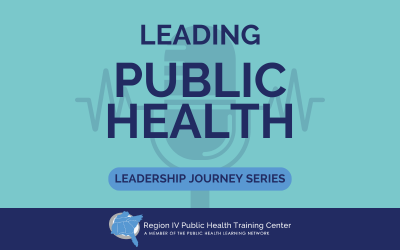

Year: 2024 | Competency/Strategic Skill: Leadership and Systems Thinking | Priority Topic: N/A | Setting: Online | Format: On-demand | Sponsor: Emory University/Central Office
Overview:
This is the second series offered as part of our Leading Public Health podcast with episodes available on Spotify and Apple Podcasts.
In the Leadership Journey Series we focus on the journey of leadership and how to recognize your strengths to better understand your purpose as a leader.
Episode 1: Building a Public Health Career with Moose Alperin (available now) Download Transcript
Episode 2: Professional Networking with Samantha Cinnick (available now) Download Transcript
Episode 3: Early Career Development with Nellie Garlow (available now) Download Transcript
Episode 4: Mentorship with Nina Johnson (available now) Download Transcript
Episode 5: Unlocking Your Leadership Potential – Part 1 with Emily Saunders (available now) Download Transcript
Episode 5: Unlocking Your Leadership Potential – Part 2 with Emily Saunders (available now) Download Transcript


Year: 2024 | Competency/Strategic Skill: Leadership and Systems Thinking | Priority Topic: N/A | Setting: Online | Format: On-Demand | Sponsor: Emory University/Central Office
Overview:
This is a recording of a 90-minute webinar held on June 20, 2024
This session will introduce the participant to regenerative leadership (RL)- a positive, strength-based, relational, and adaptive approach to leading in complex times. The webinar will focus first on the concept of “leading with your whole self” and then define the RL approach to collaborating in complex contexts. The webinar will introduce the key mindset shifts required to develop your RL capabilities as well as specific skills required for more effective, collaborative leadership in volatile, uncertain, complex, and ambiguous (VUCA) times.
Dr. Marissa Levine is Professor of Public Health Practice at the University of South Florida (USF) College of Public Health (COPH) and collaborating faculty to the Department of Family Medicine and the Division of Infectious Diseases at the USF Morsani College of Medicine in Tampa, Florida. Her primary focus is on leadership for population health improvement. Dr. Levine directs the USF Center for Leadership in Public Health Practice at COPH where she teaches a positive, strength-based, systems thinking approach to leading in complex contexts, called regenerative leadership.
Dr. Levine is a retired family physician with 16 years of medical practice experience including as residency director for a family medicine residency. She subsequently completed 16 years of state government service culminating in being appointed as the Virginia State Health Commissioner and agency head for the Virginia Department of Health (VDH) from 2014-2018. As Commissioner, Dr. Levine led the effort to create an action framework for population health improvement called Virginia’s Plan for Well-Being and led significant public health emergency preparedness and response activities as the state ESF-8 lead.
Learning Objectives: By the end of this webinar, participants will be able to:
CERTIFICATE: The course contains two modules: a module to access the webinar and an evaluation module. After accessing both modules, learners will earn a certificate of completion.
This project is supported by the Health Resources and Services Administration (HRSA) of the U.S. Department of Health and Human Services (HHS) under grant number UB6HP31680, Public Health Training Centers for $4,348,992. This information or content and conclusions are those of the author and should not be construed as the official position or policy of, nor should any endorsements be inferred by HRSA, HHS or the U.S. Government.


Year: 2024| Competency/Strategic Skill: Policy Development/Program Planning Skills; Leadership and Systems Thinking | Priority Topic: N/A | Setting: Online | Format: On-Demand | Sponsor: Emory University/Central Office
Overview:
This is a recording of a live webinar on January 22, 2024.
The politicization of widely accepted practices like vaccinations and the declaration of public health emergencies is directly impacting public health’s ability to protect and promote healthy communities. The decline in trust and investment in public health has raised the question: How can we strengthen public health advocacy at local, state, and national levels? In a feasibility study conducted by the Network for Public Health Law, public health advocates and leaders from 45 organizations were asked this very question. Their responses provide a snapshot of the current state of public health and highlight opportunities to amplify the voice of public health and our partners in advocating for evidence-based policies and approaches. Join us in this webinar to learn more about the findings from this study and the opportunities to work together to support the profession and practice of public health. Participants will also learn how to build skills to better communicate public health to all in their community and the resources available to support this critical advocacy work.
After working in the fields of public health, evaluation & research, and philanthropy for over a decade, Maddie Frey started Frey Evaluation, LLC, a public health evaluation firm in 2018 to provide consulting services for organizational learning, evaluative thinking & tools, and movement toward systems change. Maddie’s previous work includes Cottage Health Hospital Director of Population Health Evaluation (Santa Barbara, CA), Healthcare Georgia Foundation’s Director of Evaluation (Atlanta, GA), Center for Community Health & Evaluation (Seattle, WA), and Georgia State University SPH Adjunct Faculty. Ms. Frey has an MPH from the University of Washington’s community-oriented public health practice program, and a BA in anthropology from Smith College. As an athlete and organizer, Maddie co-founded, led or coached the following organizations: Georgia Tech Wreck, Atlanta Women’s Ultimate, Atlanta Outbreak, Atlanta Soul, the Premier Ultimate League, and the Premier Ultimate League Foundation.
Iyanrick John serves as Vice President of External Affairs for ChangeLab Solutions. In this role, he is responsible for assisting with development and execution of the organization’s policy strategy, building and cultivating relationships with partners, and elevating the organization’s national profile. Prior to joining ChangeLab Solutions, Iyan served as a Senior Policy Strategist for the Asian & Pacific Islander American Health Forum (APIAHF), where he assisted with policy and advocacy efforts to expand access to health care, improve health care quality, and further the collection and reporting of data for communities to address health inequities. He was also a lecturer at the California State University, East Bay Department of Public Health and worked as a Policy Analyst for the Office of Minority Health and Health Disparities at the Maryland Department of Health. Iyan has an MPH in Epidemiology from Loma Linda University and a JD from the University of Maryland School of Law.
Learning Objectives: By the end of this webinar, participants will be able to:
CERTIFICATE: The course contains two modules: a module to access the webinar and an evaluation module. After accessing both modules, learners will earn a certificate of completion.
This project is supported by the Health Resources and Services Administration (HRSA) of the U.S. Department of Health and Human Services (HHS) under grant number UB6HP31680, Public Health Training Centers for $4,348,992. This information or content and conclusions are those of the author and should not be construed as the official position or policy of, nor should any endorsements be inferred by HRSA, HHS or the U.S. Government.


Year: 2024| Competency/Strategic Skill: Leadership and Systems Thinking | Priority Topic: N/A | Setting: Online | Format: On-Demand | Sponsor: Emory University/Central Office
Overview:
This is a recording of a live webinar on January 26, 2024.
An emotionally intelligent leader is aware of their thoughts and behaviors and how the two impact the individuals and teams they lead. The result, more productive and collaborative teams who communicate effectively. The Emotionally Intelligent Leader webinar will dispel myths about emotions’ place in the work environments and provide a foundational understanding of emotional intelligence to include an introduction to a theoretical model that guides individual and social behaviors. Participants will complete this webinar with skills and strategies to elevate their emotional intelligence for their personal and team’s success.
Nina M. Johnson, EdS, LMSW, APTD, has 15 consecutive years of professional experience in learning and talent development for communities, not-for-profit organizations, and government municipality. As a skilled communicator, Nina has a history of implementing innovative programs focused on learner needs and performance enhancement. Utilizing her experience as a social worker, Nina employs exceptional relationship-building skills to connect with communities and clients with honor and respect to design and implement learning and leadership initiatives that are reflective of the needs and capacity of the community. Much of Nina’s work encourages and empowers leaders and potential leaders to access vulnerability, hope, and authenticity as leadership tools. As a learning and leadership consultant, Nina develops, delivers, and evaluates leadership development programming and trainings for communities, organizations, and individuals. In addition to establishing transformative learning programs, Nina contributes to organizational cultures by championing initiatives to boost belonging and diversity. In addition to establishing transformative learning programs, Nina contributes to organizational cultures by championing initiatives to boost belonging and diversity.
Learning Objectives: By the end of this webinar, participants will be able to:
CERTIFICATE: The course contains two modules: a module to access the webinar and an evaluation module. After accessing both modules, learners will earn a certificate of completion.
This project is supported by the Health Resources and Services Administration (HRSA) of the U.S. Department of Health and Human Services (HHS) under grant number UB6HP31680, Public Health Training Centers for $4,348,992. This information or content and conclusions are those of the author and should not be construed as the official position or policy of, nor should any endorsements be inferred by HRSA, HHS or the U.S. Government.
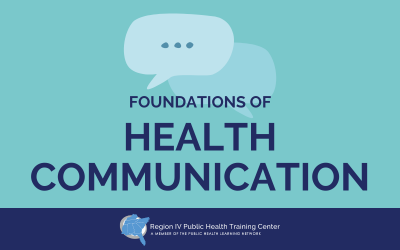

Year: 2023 | Competency/Strategic Skill: Leadership and Systems Thinking; Communication | Priority Topic: N/A | Setting: Online | Format: On-demand | Sponsor: Emory University/Central Office
Overview:
This is a self-paced course series.
Foundations of Health Communication is a series of self-paced, on-demand courses that address the need for communication training. Effective communication skills are essential to the public health workforce’s efforts to collaborate with partners and teams, educate policymakers, convey messages during an emergency, or take action in other ways as we work to build healthier communities.
Course 1: Communicating Clearly: The Importance of Plain Language – designed to help the workforce learn about the basic principles of plain language, understand the benefits of clearer communication in all their work, and how to apply the principles to content ranging from educational materials to social media posts.
Course 2: Improving Health Literacy for All – provides an overview of health literacy from the individual and organizational levels and introduces some techniques and tools to improve health literacy.
Course 3: Understanding and Tackling Misinformation and Disinformation – introduces misinformation, disinformation, and malinformation (MDM) and explores its origins, how it spreads, the harm it can cause, and how to prevent and manage it.
Course 4: Introduction to Using Social Media – provides an overview of how and why organizations should use social media to advance their public health goals.
Course 5: Audience Segmentation: A Critical Skill in Planning Public Health Communication – provides an overview of audience segmentation and explains how it helps with the development of targeted messages.
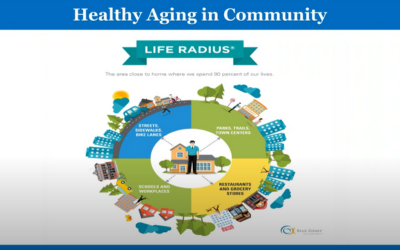

Year: 2023 | Competency/Strategic Skill: Leadership and Systems Thinking Skills; Public Health Fundamentals| Priority Topic: N/A | Setting: Online | Format: On-Demand | Sponsor: University of South Florida College of Public Health’s Center for Leadership in Public Health Practice
In Overview:
This is a recording of a live webinar held on October 18, 2023
This training presented by Dr. Kathy Black aims to increase the capacity of local health departments, health care organizations and allied health and social service providers to conduct community health assessment and improvement practice to promote healthy aging for older adults and broader population aging.
This training is sponsored by the University of South Florida College of Public Health’s Center for Leadership in Public Health Practice, the Florida Community Based Training partner of the Region IV Public Health Training Center based at Emory University.
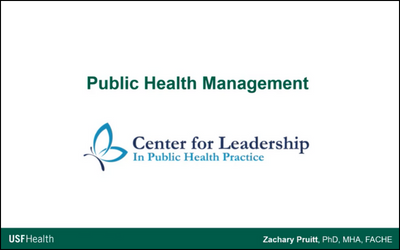

Year: 2023 | Competency/Strategic Skill: Leadership and Systems Thinking Skills; Public Health Fundamentals| Priority Topic: N/A | Setting: Online | Format: On-Demand | Sponsor: University of South Florida College of Public Health’s Center for Leadership in Public Health Practice
In Overview:
This is a recording of a live webinar held on August 17, 2023
In this training, Dr. Zachary Pruitt covers the role of the manager in public health organizations. Three prominent perspectives on the essential functions of the manager in all settings will be discussed, including Systems Thinking, Five Basic Functions of the Manager, and Manager as Leader. This session will also describe how health care management is different than management in other sectors, including the health care manager’s role on the interprofessional team. Finally, this session will review the skills necessary for managers to lead public health organizations.
This training is sponsored by the University of South Florida College of Public Health’s Center for Leadership in Public Health Practice, the Florida Community Based Training partner of the Region IV Public Health Training Center based at Emory University.


Year: 2023 | Competency/Strategic Skill: Communication; Problem Solving; Leadership and Systems Thinking | Priority Topic: Other Infectious Diseases | Setting: Online | Format: On-Demand | Sponsor: Emory University/Central Office; University of Alabama at Birmingham
he Overview:
This is a recording of a webinar held on November 7, 2023.
In this webinar, Dr. Wallace, Epidemiologist and Adjunct Assistant Professor of Epidemiology at the University of Illinois at Chicago, School of Public Health, will discuss infodemics and how they occur, talk through misinformation vs. correct information and how they both can contribute to infodemics and will review the problem of infodemics and how we can reduce information overload and confusion by prioritizing consistent and clear scientific communication to mitigate public confusion and information fatigue. This webinar is presented by the Alabama Regional Center for Infection Prevention and Control and cosponsored by the Region IV Public Health Training Center.
Dr. Katrine Wallace holds a Ph.D. in Epidemiology and has 15+ years of professional research experience in epidemiology, research design, pharmacoepidemiology, health economics, outcomes research, and biostatistics. She is currently an epidemiologist and adjunct assistant professor of epidemiology at the University of Illinois at Chicago, School of Public Health. She is also known as “Dr. Kat” on her popular social media channels, where she educates on epidemiology, vaccines, and the COVID-19 pandemic. She has been an invited speaker in the US and internationally and has presented research at over 20 scientific congresses. A vaccine advocate, she serves as a member of “Team Halo” (United Nations Verified Initiative), Project FIDES (World Health Organization) and was chosen as a “vaccine luminary” for the 2021 G7 Vaccine Confidence Summit. Dr. Wallace has also been featured as an opinion contributor for The Hill, and has been interviewed or profiled in several mainstream media outlets such as; BBC World News, The Washington Post, Good Morning America, Bloomberg, CBS News, and National Public Radio.
This webinar is presented by the Alabama Regional Center for Infection Prevention and Control Training and Technical Assistance and cosponsored by the Region IV Public Health Training Center.


Year: 2023 | Competency/Strategic Skill: Leadership and Systems Thinking | Priority Topic: Community and Partner Engagement; Leadership and Systems Thinking | Setting: Online | Format: On-Demand | Sponsor: Emory University/Central Office
he Overview:
This is a recording of a live webinar on November 1, 2023.
The Department of Transportation’s National Highway Traffic Safety Administration (NHTSA) is implementing new traffic safety policies that highlight equity through the National Road Safety Strategy and Safe System Approach. But keeping the public safe and healthy requires coordination and collaboration across multiple sectors. The Department of Public Health and the Department of Transportation have successfully worked together to build community partnerships to address health equity and improve road safety. This webinar will review these programs and policies and highlight specific examples from the field to learn how public health agencies in Alabama and Georgia are successfully reaching underserved and at-risk communities through evidence-based traffic safety programming.
Rita Hill is a Stakeholder Engagement Specialist with NHTSA. She supports stakeholder expansion and community engagement initiatives throughout the country. She has a background in international development and public health and is driven by the belief that prioritizing safety and accessibility for the most marginalized benefits everyone.
Erin Sterling is a Program Analyst and Stakeholder Engagement Specialist with NHTSA. She has experience working directly with the community at the YWCA in Manchester, NH, as well as with the Commonwealth of Massachusetts Office of Grants and Research, where she managed a myriad of Department of Justice Grants, including the Edward Byrne Memorial Justice Assistance Grant, and the Violence Against Women Act. Erin holds a BA in Criminal Justice from Saint Anselm College and an MA in Public Administration from the University of New Hampshire.
Amanda Jackson is Alabama’s Regional Program Manager for NHTSA. She previously worked as a Grant Planner for the Georgia Governor’s Office of Highway Safety and was the Atlanta Regional Coordinator for the Georgia Department of Public Health’s Child Occupant Safety Project. Amanda has a Master of Public Health in Health Behavior from the University of Alabama at Birmingham and a Bachelor of Science in Health Promotion from the University of Georgia.
She has also invited several state-level partners to share their experiences, including:
Lynne Wilman, Unit Chief, Law Enforcement and Traffic Safety Division of Alabama Department of Economic and Community Affairs
Denise Bertaut, State Coordinator, Child Passenger Safety, Alabama Department of Public Health
Lisa Dawson, Director, Injury Prevention Program, Georgia Department of Public Health
Learning Objectives: By the end of this webinar, participants will be able to:
CERTIFICATE: The course contains two modules: a module to access the webinar and an evaluation module. After accessing both modules, learners will earn a certificate of completion.
This project is supported by the Health Resources and Services Administration (HRSA) of the U.S. Department of Health and Human Services (HHS) under grant number UB6HP31680, Public Health Training Centers for $4,348,992. This information or content and conclusions are those of the author and should not be construed as the official position or policy of, nor should any endorsements be inferred by HRSA, HHS or the U.S. Government.


Year: 2023 | Competency/Strategic Skill: Communication; Leadership and Systems Thinking | Priority Topic: N/A | Setting: Online | Format: On-Demand | Sponsor: Emory University/Central Office
Overview:
This is a recording of a live webinar on September 6, 2023.
What do we do when we are asked to talk about a public health issue? How do we ensure that the public trusts what they hear when important information about a public health issue is shared on the news? How do public health professionals demonstrate confidence and competence when called on to share important information? The objective of this webinar is to equip participants with an understanding of how to work with the news media in both a proactive and reactive manner. The course covers the basics of media relations, and provides tips on developing a media strategy, proactively pitching story ideas, interviewing techniques, staying on message, and controlling the communication.
Dr. Cynthia Jorgensen is an Adjunct Professor at Emory University’s Rollins School of Public Health, with joint appointments in the Department of Behavioral, Social and Health Education Sciences and the Executive MPH Program. Dr. Jorgensen recently retired from the U.S Centers for Disease Control and Prevention, where she was the Associate Director for Communication, National Center for Immunization and Respiratory Diseases. In this role, she oversaw the communications efforts for a variety of vaccine-preventable and respiratory diseases and was actively engaged in CDC’s COVID-19 response. While at CDC for more than 30 years, Dr. Jorgensen applied her expertise in behavioral science and health communications to the development and implementation of several award-winning campaigns in hepatitis, cancer, genomics, and HIV/AIDS. Cynthia has held numerous leadership positions, including Chair of CDC’s Behavior and Social Sciences Working Group (BSSWG) and President of the National Society for Public Health Education (SOPHE). Cynthia received her doctoral degree in Health Behavior and Communications from the University of North Carolina at Chapel Hill and her BA/MA in Health Communications from Boston University.
Learning Objectives: By the end of this webinar, participants will be able to:
CERTIFICATE: The course contains two modules: a module to access the webinar plus an additional module for the evaluation and any other resources. After accessing both modules and completing the evaluation link, the course will be marked as complete in Learn Upon. When the course is complete, the certificate will be available for learners to download directly from their course dashboard.


Year: 2023 | Competency/Strategic Skill: Communication; Leadership and Systems Thinking | Priority Topic: N/A | Setting: Online | Format: On-Demand| Sponsor: Emory University/Central Office
Overview:
This is a recording of a live webinar on August 16, 2023.
People are predictable. Unfortunately, the world around us rarely is as easy to predict or understand. Public health professionals are called on to respond to scary, unknown, urgent, and important issues every day in big and small ways. Learning strategies for risk communication can make this work a little bit easier and a lot more effective. This webinar introduces basic concepts of risk communication as well as the critical principles of how to communicate during an outbreak, crisis or emergency situation. This training also provides insights into how and why people respond to risk, and helps participants understand the mental shortcuts that are common responses to hazards, risks, and threats. Practical tips are presented throughout to help participants gain skills in assessing and responding to their individual situations in their communities.
Dr. Cynthia Jorgensen is an Adjunct Professor at Emory University’s Rollins School of Public Health, with joint appointments in the Department of Behavioral, Social and Health Education Sciences and the Executive MPH Program. Dr. Jorgensen recently retired from the U.S Centers for Disease Control and Prevention, where she was the Associate Director for Communication, National Center for Immunization and Respiratory Diseases. In this role, she oversaw the communications efforts for a variety of vaccine-preventable and respiratory diseases and was actively engaged in CDC’s COVID-19 response. While at CDC for more than 30 years, Dr. Jorgensen applied her expertise in behavioral science and health communications to the development and implementation of several award-winning campaigns in hepatitis, cancer, genomics, and HIV/AIDS. Cynthia has held numerous leadership positions, including Chair of CDC’s Behavior and Social Sciences Working Group (BSSWG) and President of the National Society for Public Health Education (SOPHE). Cynthia received her doctoral degree in Health Behavior and Communications from the University of North Carolina at Chapel Hill and her BA/MA in Health Communications from Boston University.
Learning Objectives: By the end of this webinar, participants will be able to:
CERTIFICATE: The course contains two modules: a module to access the webinar and an evaluation module. After accessing both modules, learners will earn a certificate of completion. When the certificate is available, learners will see a Certificate button on their dashboard.


Year: 2023 | Competency/Strategic Skill: Communication; Leadership and Systems Thinking | Priority Topic: N/A | Setting: Online | Format: On-Demand | Sponsor: Emory University/Central Office
Overview:
This is a recording of a live webinar held on July 12, 2023, from 12-1:30 pm ET.
The most important aspects of leadership involve how well a leader communicates and connects to their team. Now that the standard workplace environment is online or a hybrid of in-person and online teams, what does leadership look like? And what is required of leaders to meaningfully connect to their team in order to cultivate good communication and engagement—and what do they do when they realize it’s not working? “Virtual Drift” refers to the gradual, unintentional tendency for virtual and hybrid team members to become increasingly disconnected from one another, from the work itself, and from the overall mission of the organization. It is critical for leaders to recognize this tendency, and actively counter that “drift” with intentional opportunities for team members to connect to one another, to the content of the work, and to the mission and meaning of the organization.
John Riordan has been committed to challenging people and organizations to reach their full potential for many years – first as co-founder and Director of Cornerstone Leadership Academy for 8 years in Uganda, and for the past 20 years as a Leadership and Organization Development Consultant working with a broad range of Federal, private sector and non-profit organizations. John sees the potential for leadership in every individual and is deeply motivated to support others who want to make the world a better place. He has coached hundreds of leaders from across every sector, challenging them expand their leadership capacity and have greater impact. Over the past 20 years he has conducted hundreds of workshops ranging from large groups (200+) to small teams and is adept at making sure the approach for the work fits well with his client’s style. John received his B.A. in Public Policy from Washington and Lee University (1987), and his M.A. in Educational Management from Makerere University in Kampala, Uganda (1997). He and his wife Margaret, from Sydney, Australia, have four children and reside in Ashburn, Virginia. You can find out more about John and his range of services and online course materials on his website at www.johnriordan.com.
Learning Objectives: By the end of this webinar, participants will be able to:
CERTIFICATE: The course contains two modules: a module to access the webinar and an evaluation module. After accessing both modules, learners will earn a certificate of completion. When the certificate is available, learners will see a Certificate button on their dashboard.
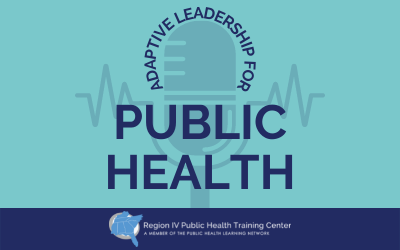

Year: 2021 | Competency/Strategic Skill: Leadership and Systems Thinking | Priority Topic: N/A | Setting: Online | Format: On-demand | Sponsor: Emory University/Central Office
Overview:
This is a podcast series with six episodes offered as part of our Leading Public Health podcast. Each episode is about 20 minutes. New episodes are released monthly.
Adaptive Leadership for Public Health is designed to help tier 3 (senior management/executive level) public health professionals address complex challenges by growing and thriving as an adaptive leader.
Episode 1: What is Adaptive Leadership? (available now) Download Transcript
Episode 2: Leadership Principles and Practices (available now) Download Transcript
Episode 3: Cultural Competence (available now) Download Transcript
Episode 4: Managing Conflict (available now) Download Transcript
Episode 5: Collaborative Leadership (available now) Download Transcript
Episode 6: Leading Change (available now) Download Transcript


Year: 2021/2022 | Competency/Strategic Skill: Leadership and Systems Thinking | Priority Topic: N/A | Setting: Online | Format: On-Demand | Sponsor: Emory University/Central Office
Overview:
This is a three-part webinar series; all parts were recorded. These were interactive webinars in which learners engaged with the instructor and other participants. Learners may choose to register for all webinars in the series or for individual sessions.
Systems problems, by definition, are complex and can seem impossible to tackle. However, there are tools and innovative approaches that might help public health professionals and partners make progress on these problems. Join us for a 3-part webinar series to learn tools and approaches for tackling large-scale community challenges, from maternal health to opioid overdoses. In the first webinar, we will cover stakeholder mapping and how understanding the whole ecosystem of players can help you decide who to include in co-creating solutions and what communications approaches to use. The second webinar will cover right-sizing your problem so that you can effectively approach and tackle it. If we don’t break systems problems down into manageable pieces, we often become immobilized by the complexity or risk losing the nuances of the problem. Finally, building off the identified parts of the ecosystem, in the third webinar, we’ll journey map the current, as well as the ideal, situation. From there, we can look at the gaps between the two states and ideate possible solutions.
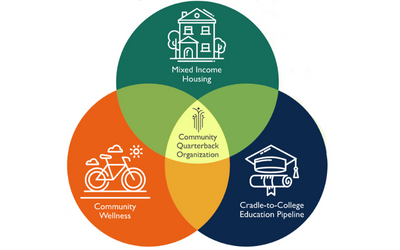

Year: 2021 | Competency/Strategic Skill: Leadership and Systems Thinking | Priority Topic: N/A | Setting: On-Demand | Format: Live | Sponsor: Emory University/Central Office
Overview:
This is a 90-minute recording of a webinar held on March 31, 2021.
During this webinar, we will discuss the causes and impact of poverty as well as the role of public health in building cross-sectoral partnerships to improve social determinants of health. We will discuss the Purpose Built Community approach to building healthier communities and more equitable neighborhoods and the impact COVID-19 is having on the community development strategies.

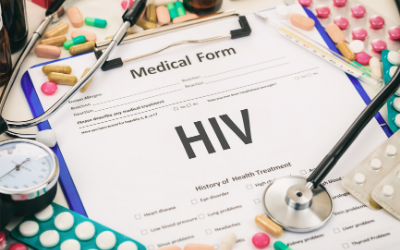
Year: 2021 | Competency/Strategic Skill: Leadership and Systems Thinking | Priority Topic: HIV/AIDS | Setting: Online | Format: On-Demand | Sponsor: Emory University/Central Office
Overview:
This is 90-minute recording of a webinar held on January 21, 2021.
During this webinar, we will review how the COVID-19 pandemic has detrimentally affected HIV care and steps that have been taken to mitigate these effects.
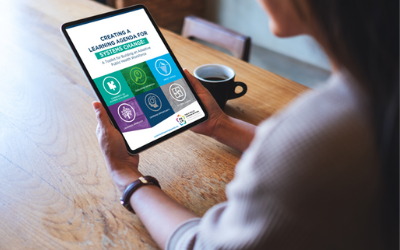

Year: 2021 | Competency/Strategic Skill: Leadership and Systems Thinking | Priority Topic: N/A | Setting: Online | Format: On-demand | Sponsor: Emory University/Central Office
Overview:
This is a recording of a one-hour webinar held on February 2, 2021.
Many complex and systemic challenges such as racism, the opioid crisis and mental health stand at the root of community health issues. These are challenges that no individual can address alone, and no single solution or intervention will solve. Therefore, the public health workforce needs to have the knowledge and skills to respond adaptively and to engage in multi-sector collaborations and multi-level interventions. Existing public health workforce development models, however, largely address gaps in specific skills or content areas of individual learners and individual competencies.
The Public Health Learning Network (PHLN) has developed the Learning Agenda Toolkit to help the public health workforce develop a coordinated system of effective, efficient and quality learning to address complex challenges. The Creating a Learning Agenda for Systems Change: A Toolkit for Building an Adaptive Public Health Workforce includes a conceptual Learning Framework, Rapid Assessment Tool, Discussion Guide, and Learning Approach Planning Tool to help public health leaders and workforce development specialists build a robust Learning Agenda and achieve their vision of systems change. The purpose of this presentation is to provide an overview of the Learning Agenda Toolkit and how different Learning Approaches – implemented over time – can be used to build collective competency to address community challenges. The session will also include a discussion of some ways that public health leaders might use the Learning Framework and tools to better align Learning Opportunities to address their communities’ challenges.
This webinar will be co-presented by Christina Welter, DrPH, MPH and Karla Todd Barrett, MBA, MSM. Dr. Welter is a policy practitioner, visionary leader, and practice-based researcher committed to helping organizations and their partners co-create equity-focused systems change. Among many roles, she is the Director of the DrPH in Leadership at the University of Illinois at Chicago School of Public Health. Ms. Todd Barrett is the Senior Program Manager and Training Specialist at the Boston University School of Public Health. She manages overall operations and partnerships for the New England Public Health Training Center (NEPHTC), including training delivery and development, data analysis, and governance.
To download your copy of the Learning Agenda Toolkit, please go to www.publichealthlearningagenda.org.


Year: 2020 | Competency/Strategic Skill: Problem Solving, Leadership and Systems Thinking | Priority Topic: Other Infectious Diseases | Setting: Online | Format: On-Demand | Sponsor: Emory University/Central Office
Overview:
This is a recording of a 90-minute webinar.
In this presentation we will discuss how models predict viral spread including the spread of COVID-19 as well as the impact it has on the community. We will review three modeling strategies used to model viral spread and how assumptions in models impact decisions made from various model outputs. We will also explore how models are used in public health policy to control infectious disease spread.


Year: 2020 | Competency/Strategic Skill: Leadership and Systems Thinking, Change Management | Priority Topic: N/A | Setting: Online | Format: On-demand | Sponsor: Emory University/Central Office
Overview:
Are you now working remotely? Are you finding it difficult to manage your stress and productivity? Are you frustrated by inefficient virtual meetings? Are you responsible for transitioning in-person trainings to the online environment? If you are grappling with these issues and others, you are not alone.
The Midwestern Public Health Training Center, the Rocky Mountain Public Health Training Center, and the Region IV Public Health Training Center have collaborated to create this course, Thriving in an Online Work Environment. Full of useful tips, practices, and resources for staying productive and connected in an online environment, this course can be viewed in its entirety or by individual topics.


Year: 2020 | Competency/Strategic Skill: Leadership and Systems Thinking | Priority Topic: N/A | Setting: In-Person | Format: Live | Sponsor: Emory University/Central Office
Overview:
This is an 8-month online and in-person program. Participants must apply to participate.
The Region IV Public Health Training Center has partnered with the J.W. Fanning Institute for Leadership Development at the University of Georgia to offer the Region IV Public Health Leadership Institute (PHLI). The PHLI provides training for individuals from across the eight states that comprise HHS Region IV (Alabama, Florida, Georgia, Kentucky, Mississippi, North Carolina, South Carolina, Tennessee). There is no fee to participate.
The PHLI is an 8-month experience providing 40 contact hours of interaction. The Institute consists of a virtual orientation, one in-person 3-day retreat, and 6 virtual sessions, lasting 1½ hours each. In addition to these sessions, participants will be asked to complete approximately 2 hours of intersession work between the virtual sessions.
By the end of the Institute, participants will be able to:


Year: 2018 | Competency/Strategic Skill: Leadership and Systems Thinking | Priority Topic: N/A | Setting: Online | Format: On-Demand | Sponsor: Emory University/Central Office
Overview:
This is a 90-minute recording of a live webinar.
This webinar will expose participants to both the challenges and benefits of a transgenerational workforce for public health professionals as it relates to the future of health and healthcare delivery in the United States. It discusses evidence-based research and strategies for mentoring and professional development in this environment. Participants will learn how to elicit feedback from partners, techniques for effectively mentoring individuals of different generations, and how to develop and implement strategies to enhance opportunities for professional development. Additionally, this webinar will teach participants how to assess staffing needs, evaluate qualifications of staff members and volunteers needed for programs, and develop and implement strategies to retain staff members and volunteers.


Year: 2016 | Competency/Strategic Skill: Leadership and Systems Thinking | Priority Topic: N/A | Setting: Online | Format: On-Demand | Sponsor: Emory University/Central Office
Overview:
This is a 90-minute recording of a live webinar.
Leaders in all levels of an organization take on many roles in leading people toward the strategic direction of the organization. One of the most important roles a leader plays is in shaping the organization culture. This webinar will introduce public health professionals to the essential tasks of effective leaders and highlight leaders’ behaviors, attitudes and values that shape an adaptive organizational culture. Participants will also learn about principles and strategies for helping an organization become less bureaucratic and more adaptive.


Year: 2019 | Competency/Strategic Skill: Leadership and Systems Thinking | Priority Topic: N/A | Setting: Online | Format: On-Demand | Sponsor: Emory University/Central Office
Overview:
This is a 90-minute recording of a webinar.
Now more than ever public health is doing more with less. How can we grow, retain and better engage our best resource: our people?
This webinar will expose the participant to mentorship as a way for Public Health to increase retention and engagement. Participants will be able to identify the value of mentorship, identify 4 models of mentorship, understand the benefits of having a mentorship program and identify some strategies for creating a successful program.


Year: 2017 | Competency/Strategic Skill: Leadership and Systems Thinking | Priority Topic: N/A | Setting: Online | Format: On-Demand | Sponsor: University of Alabama at Birmingham
Overview:
This is a 1-hour recording of a live webcast.
It is well known that preterm birth rates are higher in the U.S. than in other developed countries, and preterm birth rates are higher in Alabama than in many other states in the U.S. While our natural inclination is to look for weaknesses in the health care system or health care system access that might explain these rates, the preterm birth rate is actually not that responsive to changes in health care. This presentation explores an alternative explanation: that more child-bearing age women in the U.S. are exposed to some of the major population-level risks for preterm birth, compared to women in other countries. We compare exposures at the pregnancy, individual, community and policy levels and identify the key ways that the U.S. differs from other countries. We then consider which of these factors also differentiate Alabama from other states.


Year: 2012 | Competency/Strategic Skill: Leadership and Systems Thinking | Priority Topic: N/A | Setting: Online | Format: On-Demand | Sponsor: East Tennessee State University
Overview:
This is a 90-minute recording of a live panel discussion.
This presentation shares the unique perspectives of Tennessee Commissioners’ of Health who served the State for over 30 years.


Year: 2013 | Competency/Strategic Skill: Leadership and Systems Thinking | Priority Topic: N/A | Setting: Online | Format: On-Demand
Sponsor: East Tennessee State University
Overview:
This is an 80-minute recording of a live lecture.
Dr. Ness discusses her statement,”The joy of producing surprising improvements in health and prosperity has become outweighed by societal caution. That caution embodies the fear that science might not produce the immediate pay-offs that we expect from our investments.


Year: 2012 | Competency/Strategic Skill: Leadership and Systems Thinking | Priority Topic: N/A | Setting: Online | Format: On-Demand | Sponsor: East Tennessee State University
Overview:
This is a one-hour recording of a live lecture.
Julio Frenk, Dean of the Harvard School of Public Health, discusses educating future health professionals in the 21st century.


Year: 2012 | Competency/Strategic Skill: Leadership and Systems Thinking | Priority Topic: N/A | Setting: Online | Format: On-Demand | Sponsor: East Tennessee State University
Overview:
This is a one-hour recording of a live lecture.
Dr. Ian Lapp, Associate Dean for Strategic Educational Initiatives, Harvard School of Public Health, discusses how massive open online courses (MOOCs) will impact higher education, noting that some suggest the modern university, as we know it, will be irrevocably changed.